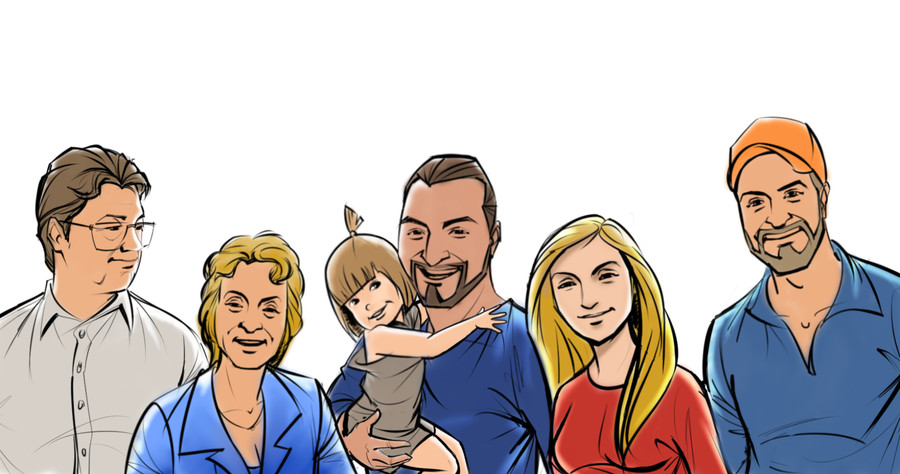
Md Altaf Hussain :
Healthy family relationships are important for your child’s wellbeing and development. Building strong family relationships supports them to cope with challenges and to learn to be independent.
Perhaps family is the most basic and resilient structure of Bangladeshi society. Though it may be difficult to speak of nation or even of caste in Bangladesh, it is not that difficult to speak of family. The latter is a reality that accompanies every Bangladeshi from birth to death. It is the family which creates the actual identity of a Bangladeshi. Yet again, it is the family which occupies pride of place in the collective imagination of the people. Not only is the family the basic cell of society, it is also the referential paradigm of any sort of social aggregation.
Good family relationships help your children feel secure and loved. They help you feel good too. You can build good relationships in your family with quality time, communication, teamwork and appreciation.
In today’s busy world, it can be difficult for families to find time to be together. All relationships need attention — and this includes the family as a whole.
Family rituals can offer a set time for families to get together and give each other the attention needed. A family ritual is simply a time that is set aside on a regular basis for a family to get together. This can mean having dinner together, celebrating a holiday together, going outside together, or going for a walk together. It is important that the family ritual be predictable and that other activities are not allowed to upset it.
Families rituals help define who we are as a family. It allows time for the family to get together, to share experiences with one another, and to reconnect with each other. Knowing that the family will have time together can help us deal with those times when we are apart. Even though parents may work, children can know that each evening, each weekend (or whenever works for your family) they will have some ? ‘Special time’ with you.
All families have conflict – it’s a natural part of human relationships. Strong families are able to work through things they disagree about by focusing on the problems, rather than by ‘tearing each other down.’
When your family is working as a team, everyone feels supported and able to contribute. It’s easier to work as a team when everyone understands where they stand, so it helps to have clear expectations, limits and boundaries.
Strong, healthy families recognise the importance of developing trust. Trust is the glue that holds relationships together.
Some ways to develop trust in your family are: Give your child opportunities to earn your trust. Let her do small tasks around the house and praise her for doing it on her own.
Show your child that you can be trusted. Children need to know that they can count on what their parents say. Follow through with the things you promise to do. Allow people in your family to make amends. We all make mistakes. Teach your child to forgive and allow yourself to forgive others. Holding on to past hurts often only hurts us.
Teach everyone how to say “I’m sorry.” Taking responsibility for our good and our bad behaviors is important and helps to develop trust. People learn to trust that they can be loved even though they are not perfect.
How to maintain relationships
As well as keeping in touch, there are ways to build and maintain relationships. It’s important to make time for family members, even if they do not live close to you.
Some ways to build strong relationships over distance include the following:
o Share family rituals and milestones, like birthdays, religious holidays and other significant events.
o Share experiences, both good and bad – show your relatives that you value their advice.
o Have family discussions to work through difficulties.
o Treat your family members with respect – set an example for your children so they understand how family members expect to be treated.
o If your extended family is from another culture, help your children to understand how this is different and what is expected of them.
o Keep cultural traditions alive and involve your relatives in new family rituals that you develop. n

